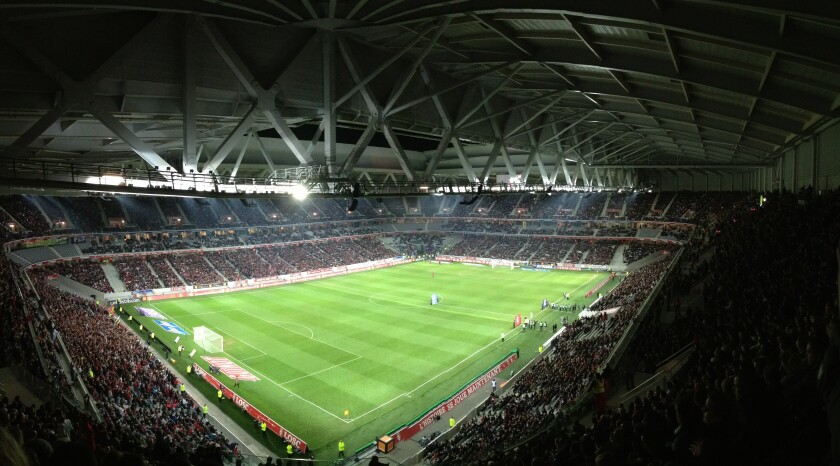April and May witnessed intriguing developments within Vietnam's IP community. On the legislation side, of particular note was the issuance of Decree No. 17/2023/ND-CP on April 26, coinciding with World IP Day. Decree 17 provides guidance on implementing the 2022 Intellectual Property Law regarding copyright and related rights, and has garnered significant attention due to several issues, especially the liability of intermediary (internet) service providers and copyright violation in the digital environment.
Additionally, two noteworthy IP cases have emerged, albeit with limited public disclosure and awareness of specific details. Nonetheless, these cases are expected to have far-reaching implications.
Copyright: criminal case against unauthorised broadcasting of football matches
For a considerable period of time, Vietnamese football enthusiasts have enjoyed being able to watch matches on TV and online from numerous top global football leagues. While many of these broadcasts were legitimate, with the rights purchased by Vietnamese and regional broadcasters, the unauthorised transmission and broadcasting of football matches on the internet has become increasingly prevalent. Authorities have seemingly faced challenges in curbing this issue through criminal action.
In a positive development, in early May the Hanoi police decided to open a criminal proceeding against the unauthorised transmission and broadcasting of high-profile overseas football matches after a rigorous two-year investigation. Prior to this decision, authorities encountered difficulties in accurately determining the relevant laws and the nature of the violation to meet the requirements for prosecution. Specifically, they grappled with the question of whether a football match, or more specifically, a recorded video of a football match, could be considered a copyrighted work. If copyright protection extended to football matches and/or recorded videos, then transmitting and broadcasting these matches directly through the internet could be deemed illegal acts of copying or distributing (copyrighted) works, as outlined in Article 225 of the Criminal Code.
After careful consideration, the police agency concluded that there was clear evidence of the copying of copyrighted works—specifically the recorded videos of football matches—for profit. Consequently, the case has been prosecuted and transferred to the investigation agency. Hopes are high that the investigation phase will conclude in the near future, paving the way for prosecution and trial. This case will serve as a crucial precedent for similar cases in the future and may be a chance to test the provisions of the new Decree 17.
Patent: landmark trial involving x-ray diffraction
Another notable case centers on a patent held by a major pharmaceutical company based in Europe, protecting ivabradine hydrochloride in gamma crystal form, which is determined through an X-ray diffraction test. Suspecting infringement by a Vietnamese enterprise, the patent holder had collected samples and conducted technical analysis in an advanced laboratory in France. Subsequently, based on the technical analysis report, the patent holder requested the Vietnam Intellectual Property Research Institute to assess the patent infringement, leading to the initiation of a lawsuit.
The case took an interesting turn when the initial judgment in 2019 ruled in favour of the plaintiff but was later overturned by the Superior Court in Ho Chi Minh City in 2020. Consequently, the case returned to the first-instance court for a retrial by a different panel of judges. In the retrial in 2022, the plaintiff emerged victorious once again, prompting an appeal of the second-instance judgment. On May 24 2023, the appellate court dismissed the defendant's appeal, upholding the previously rendered second-instance judgment. After nearly six years of litigation, the patent holder achieved victory.
Despite its lengthy process, the case holds immense significance as it addressed various issues that arose during the proceedings. Notably, it involved novel applications and interpretations of patent law regarding x-ray diffraction analysis and the utilisation of foreign analysis reports.
As for the defendant's continuous requests for a stay of the suit pending the results of the invalidation proceedings it had initiated, the court remarked that the defendant could not indefinitely delay and obstruct the court's proceedings by citing unresolved nullity proceedings. If the defendant had been serious about its invalidation request, the court reasoned, it should have assumed its responsibility to follow up closely with the IP Office rather than merely filing the invalidation request and then sitting on it for years.
The court's approach, particularly regarding appellate proceedings, is considered progressive as judgments become effective immediately upon issuance. Moving forward, the execution of this judgment and its impact on Vietnam's patent enforcement system in the coming years will be closely monitored.












